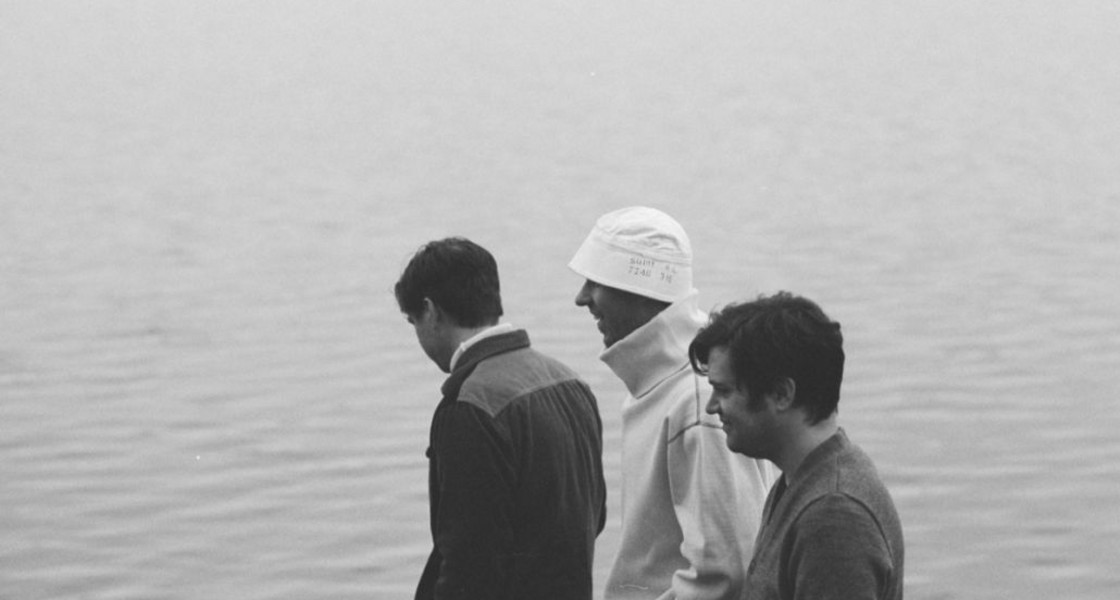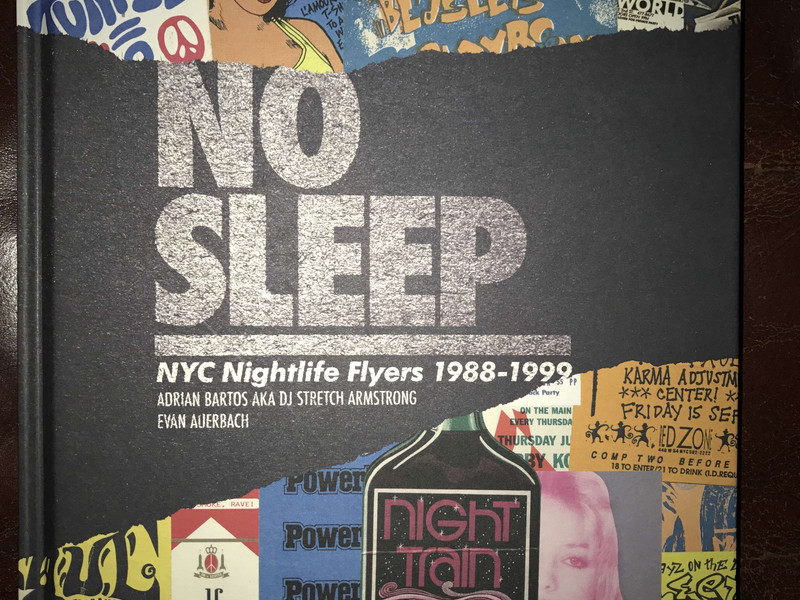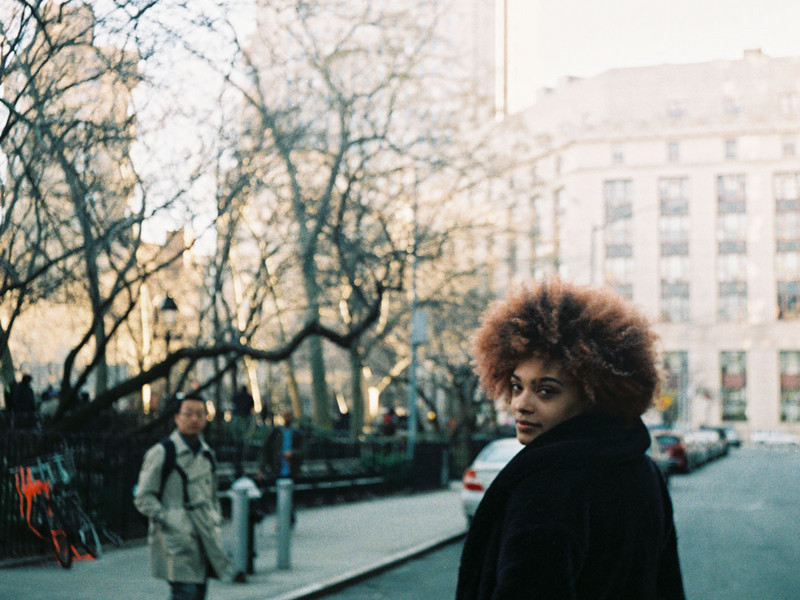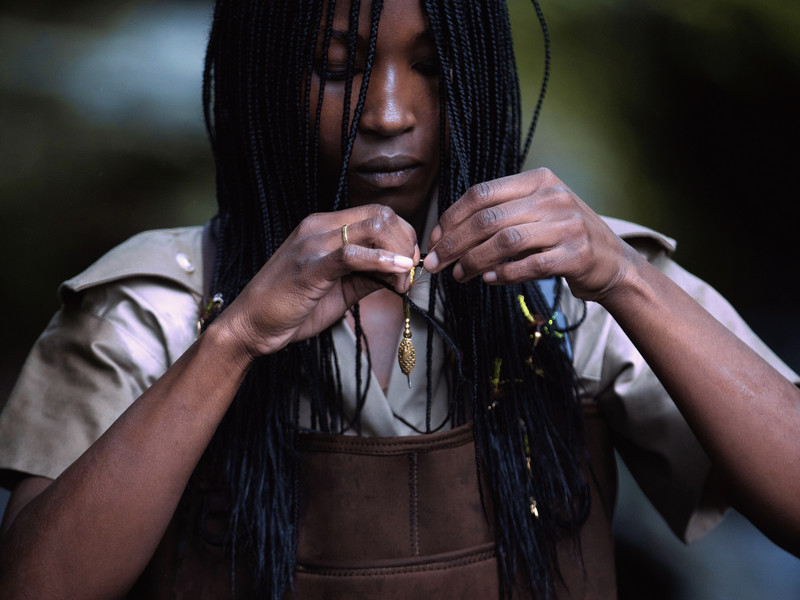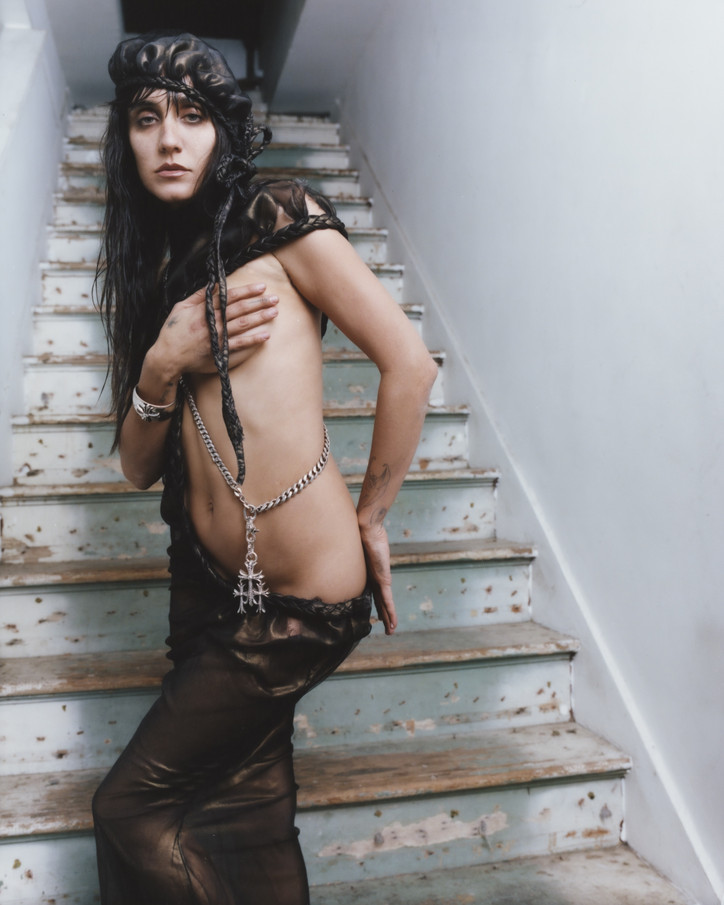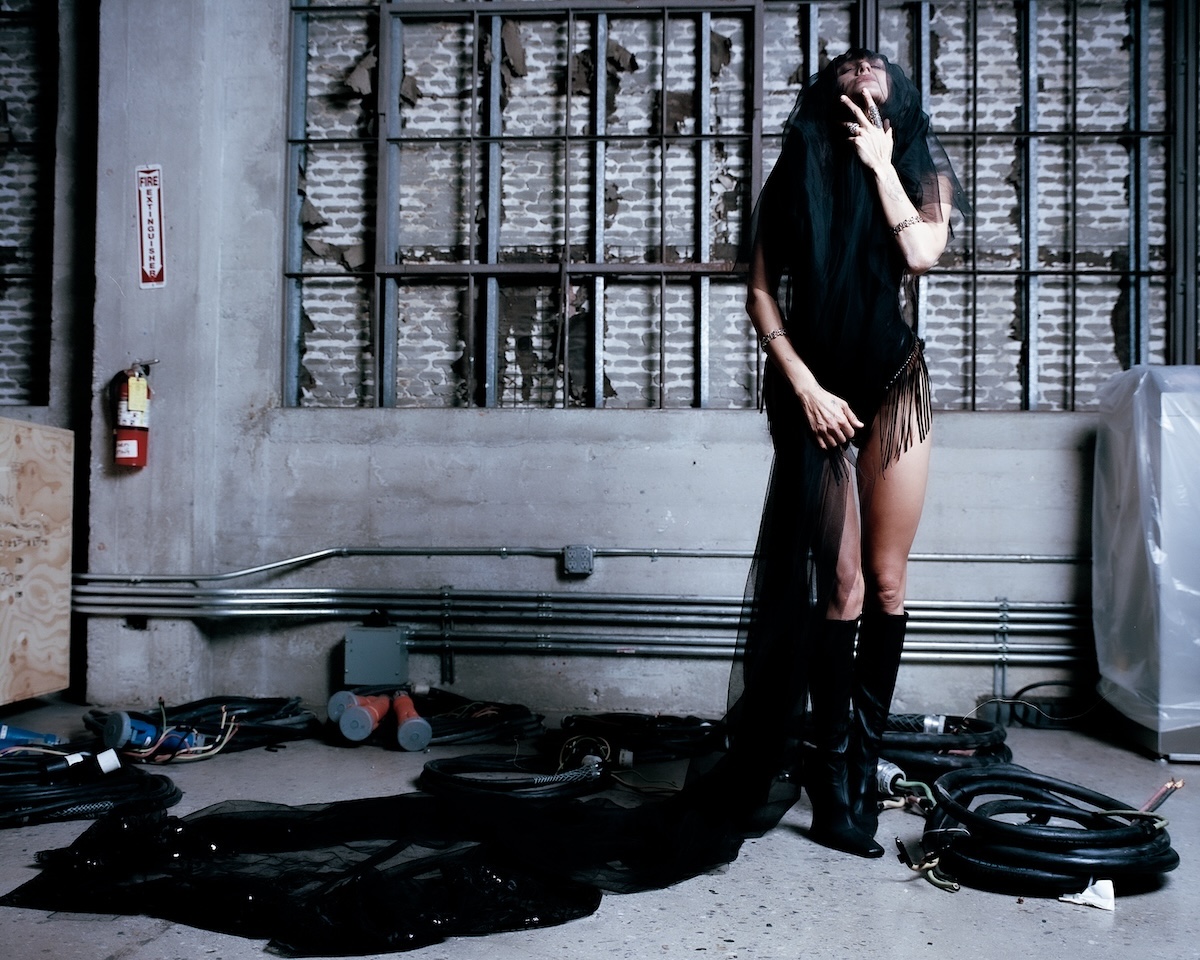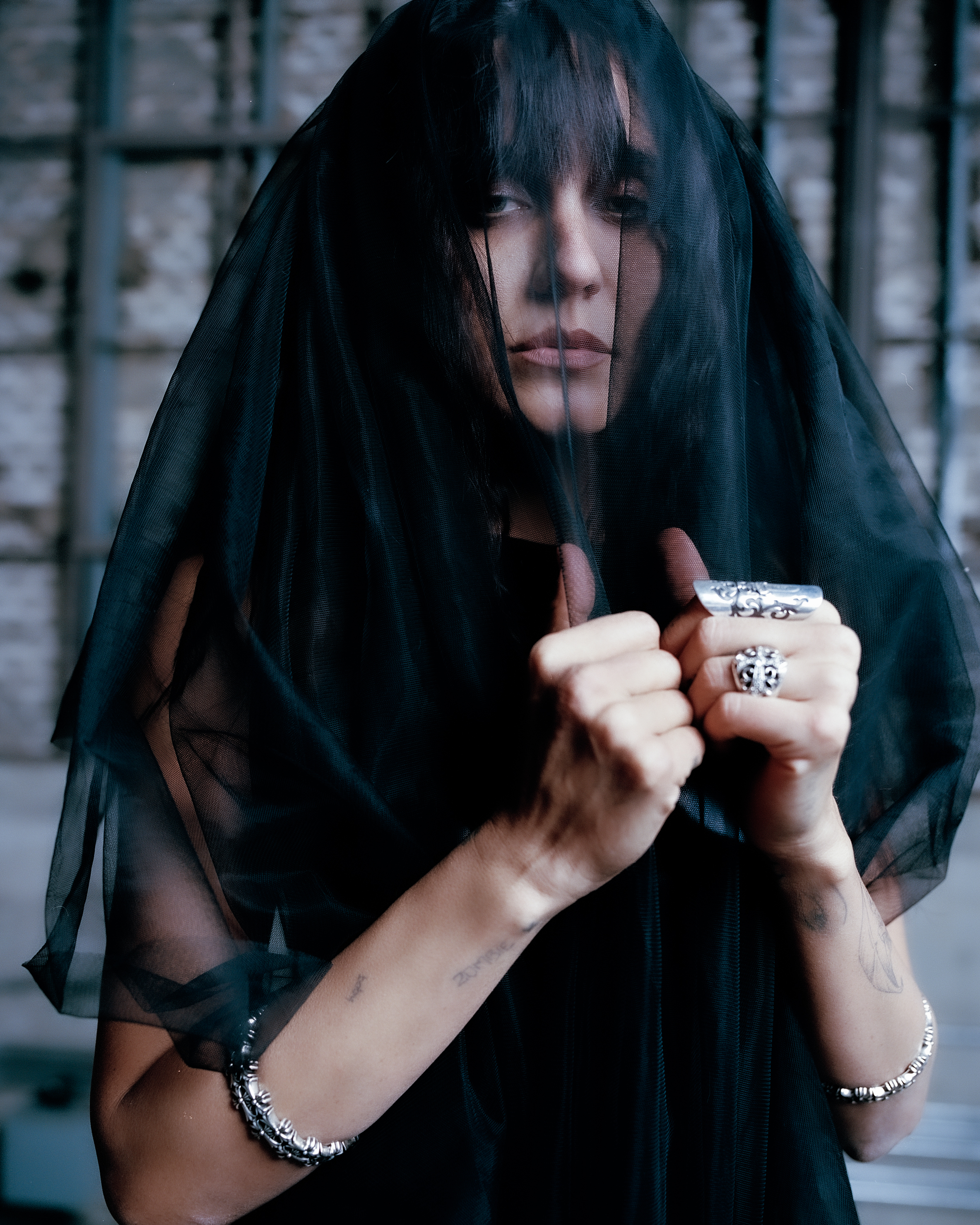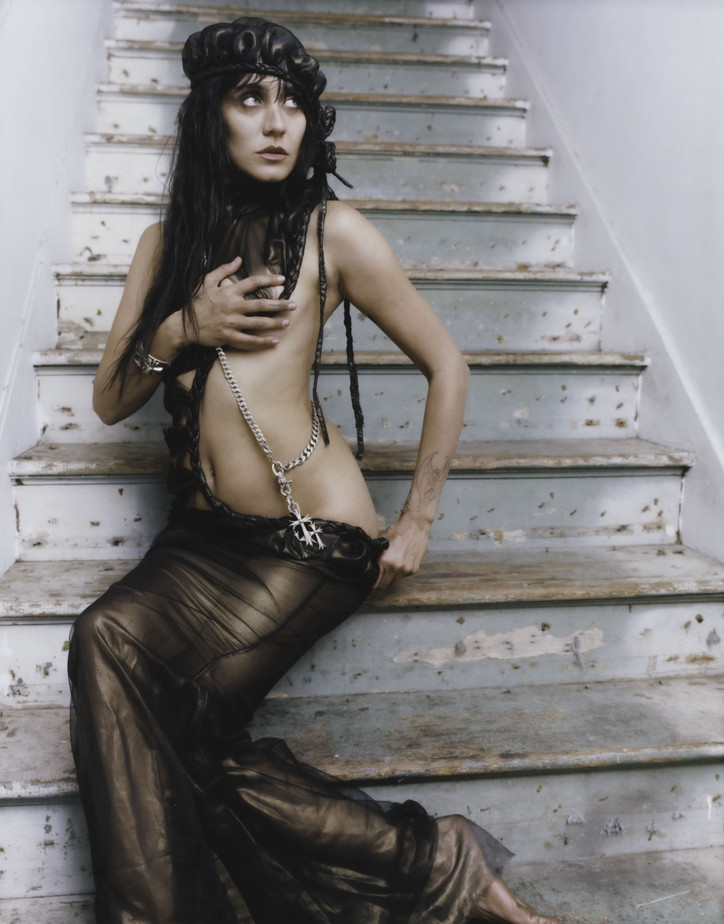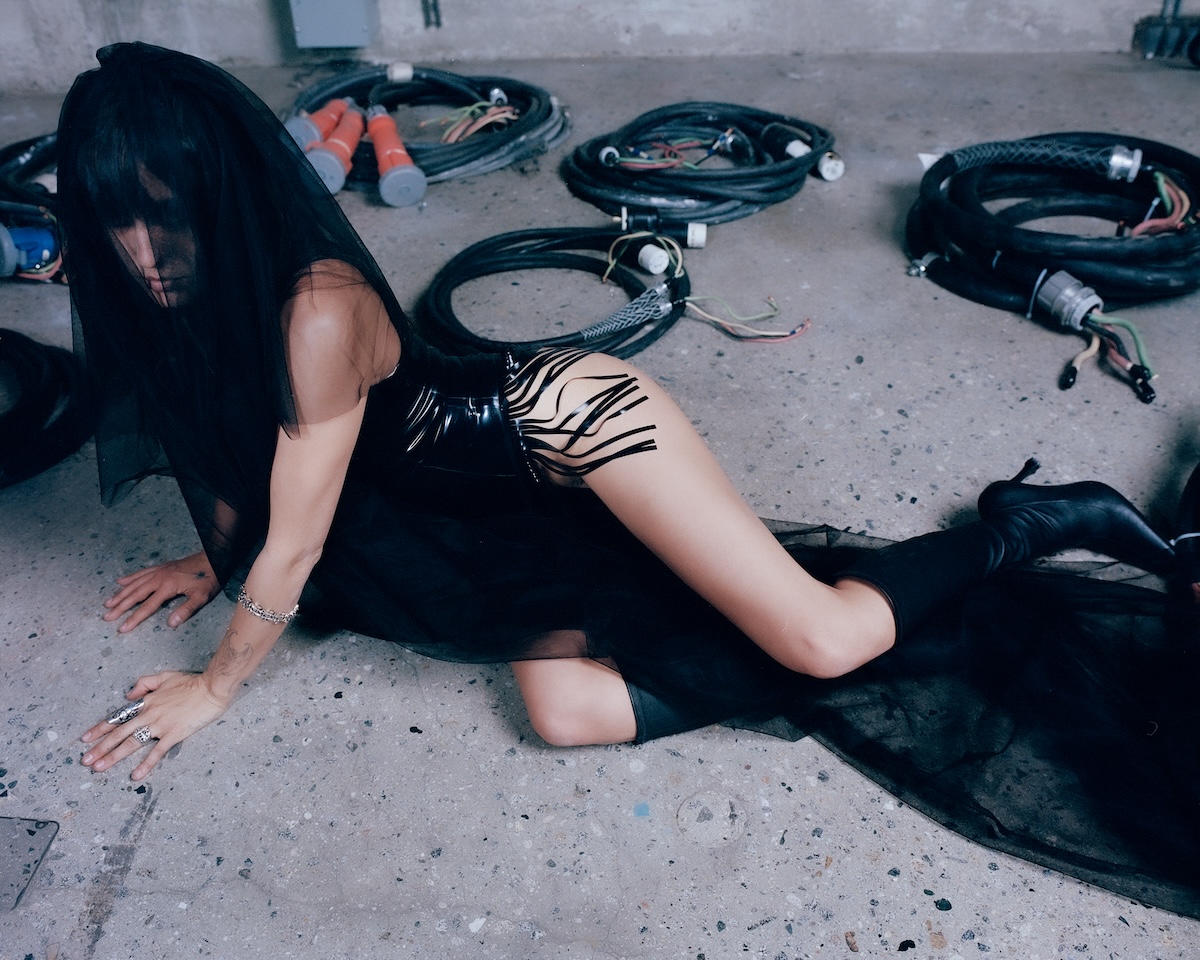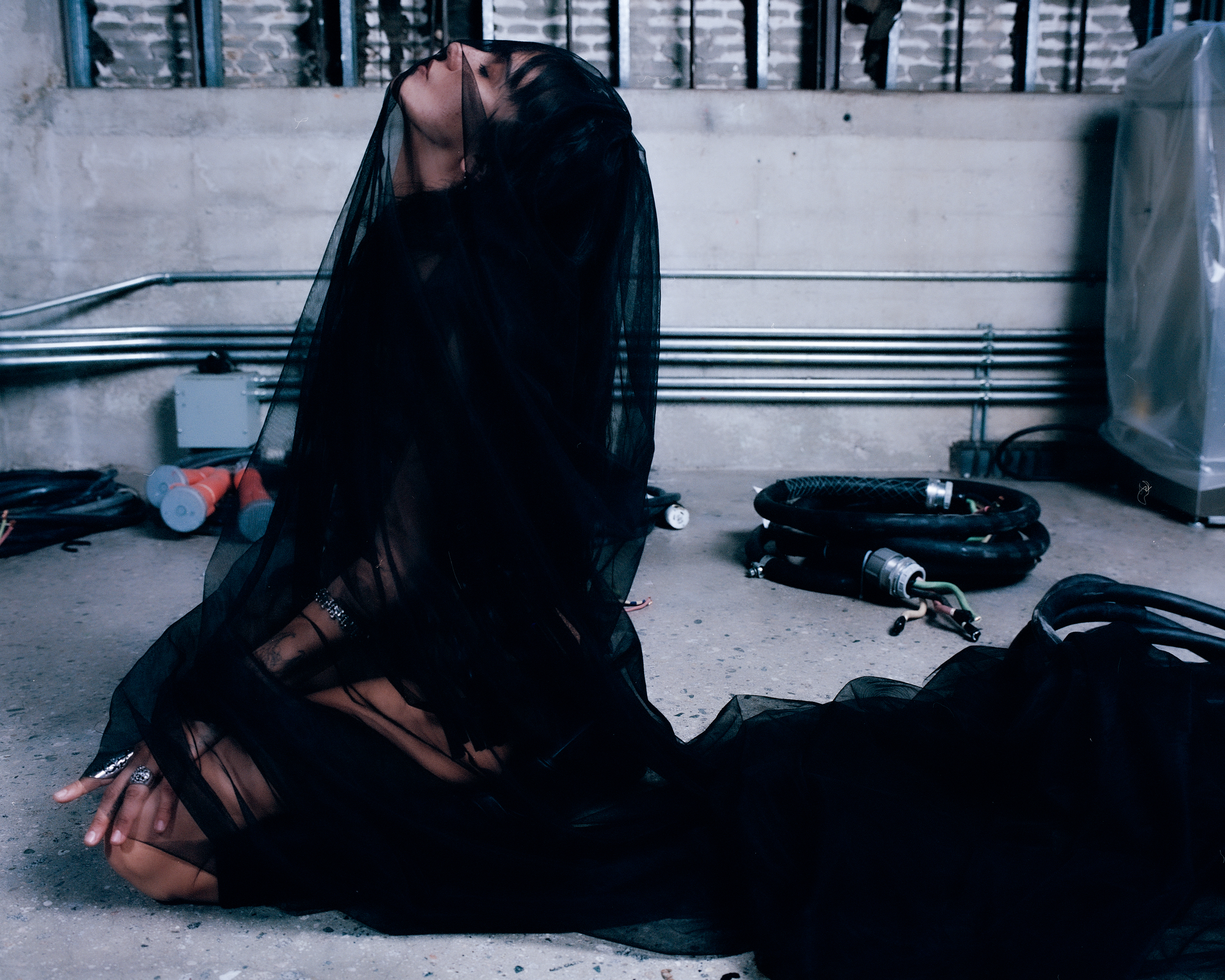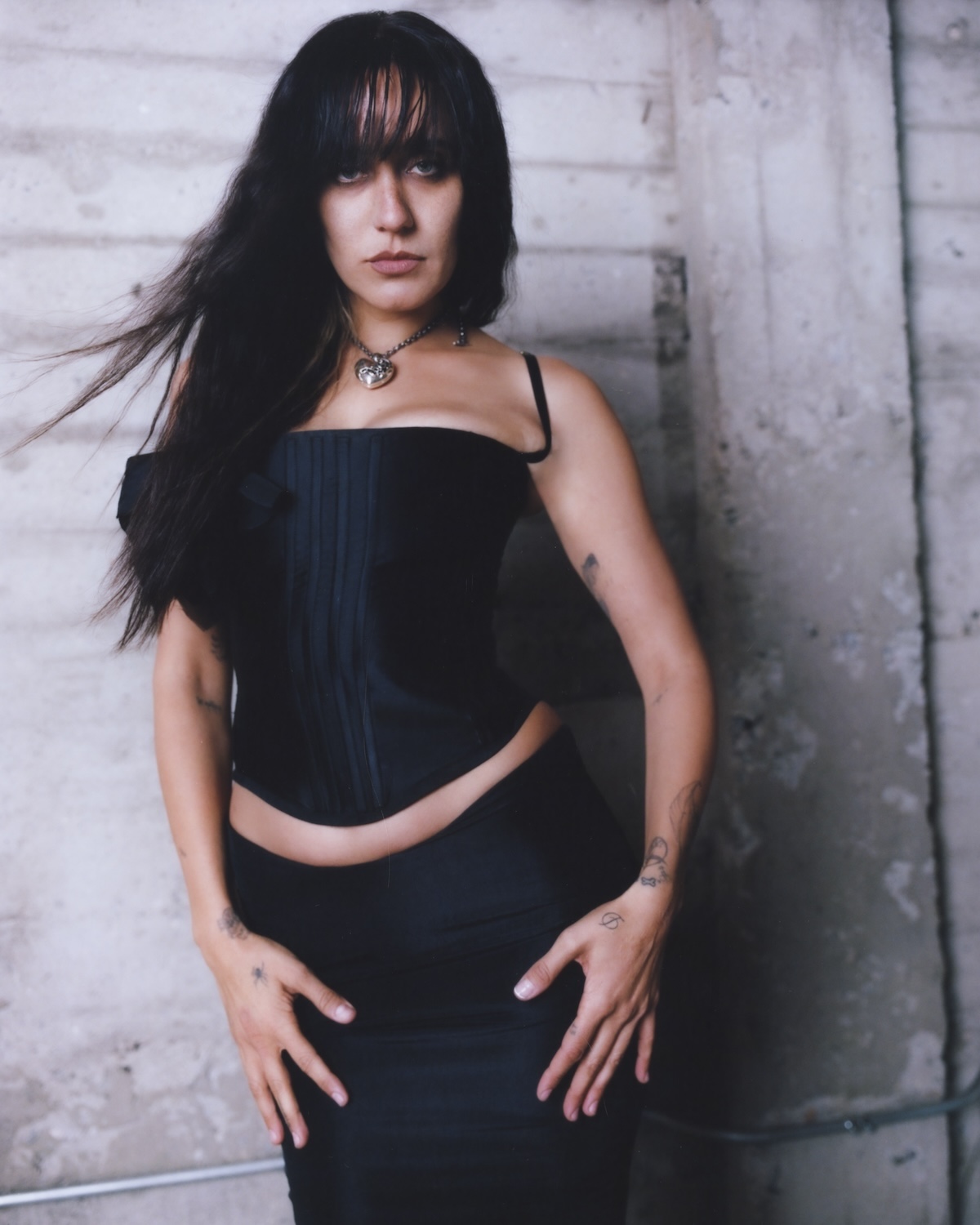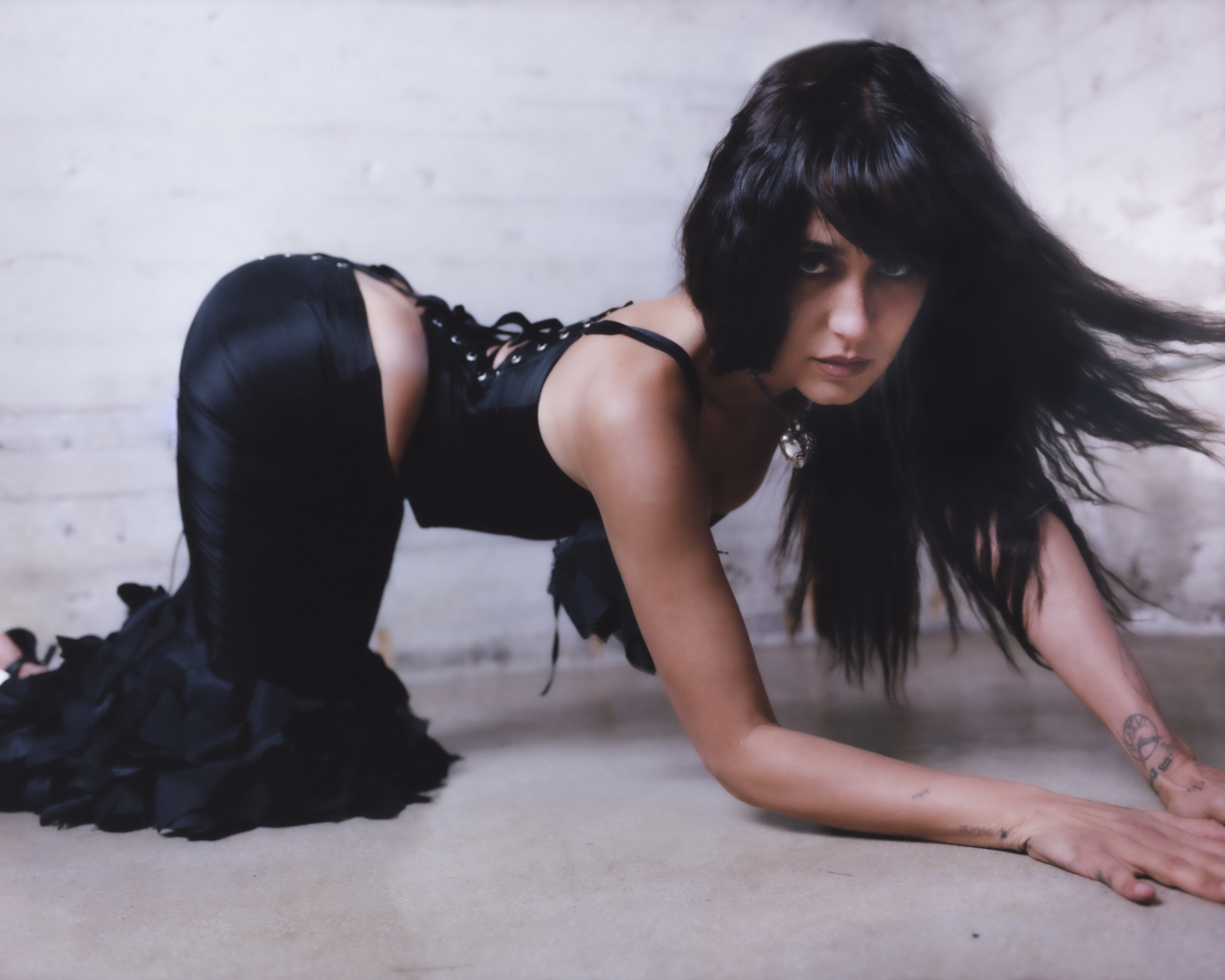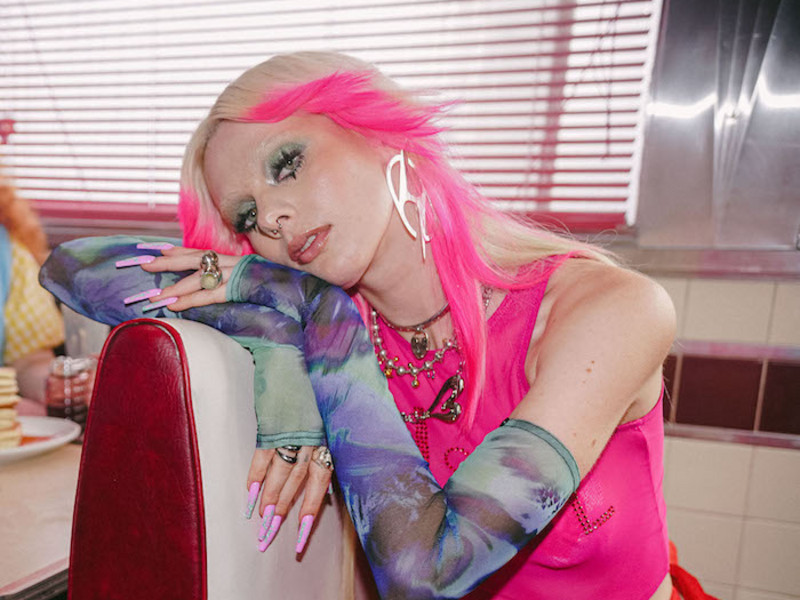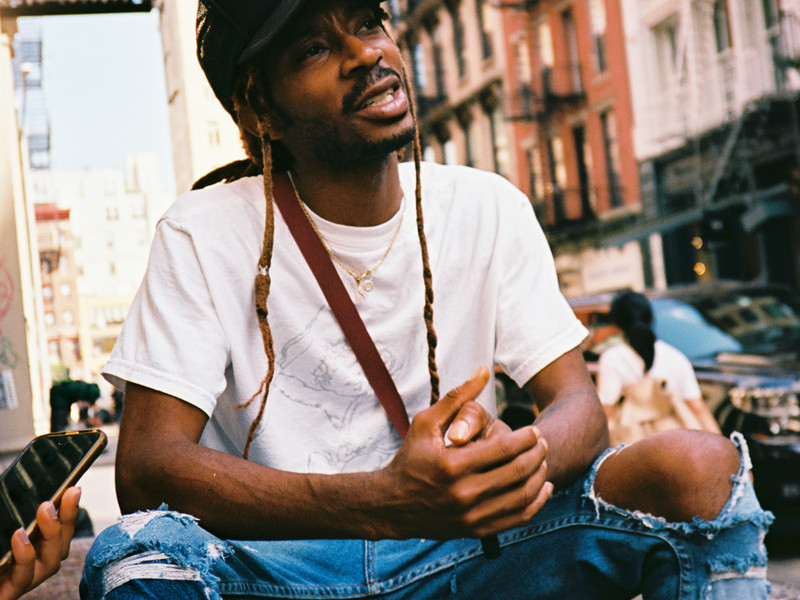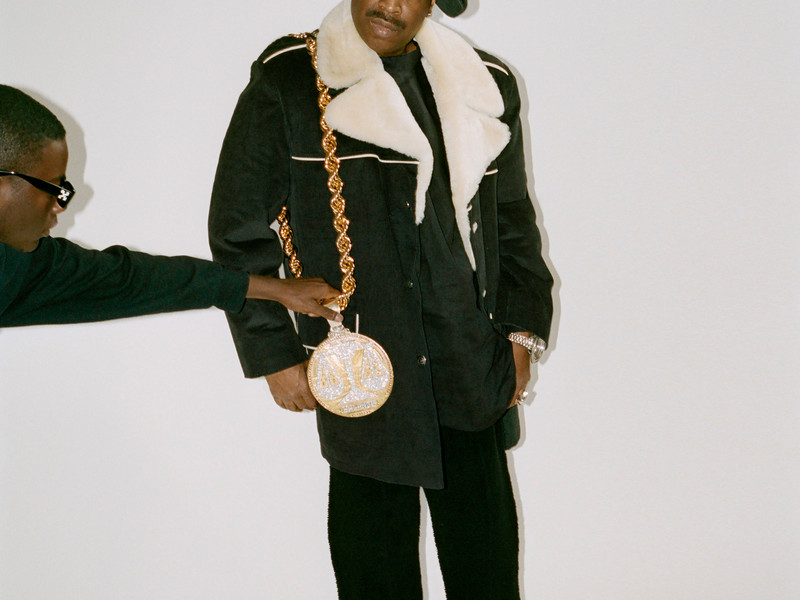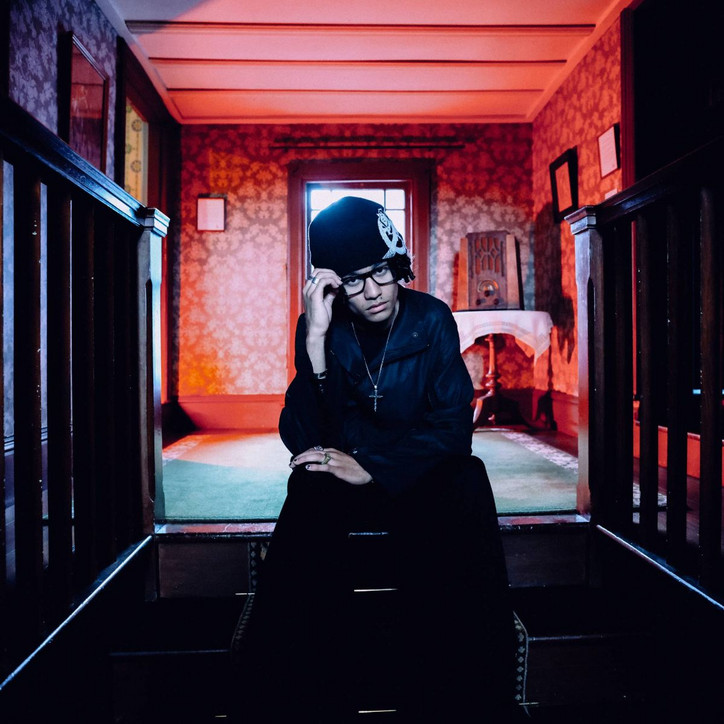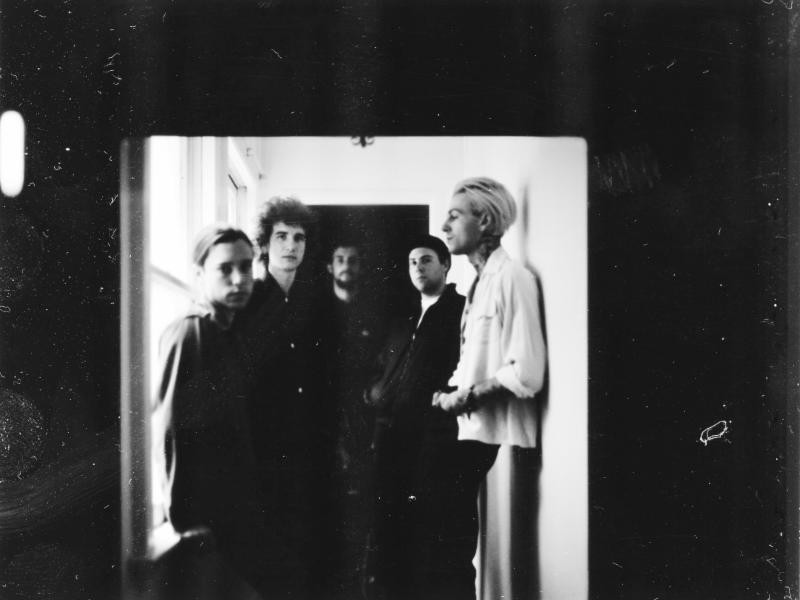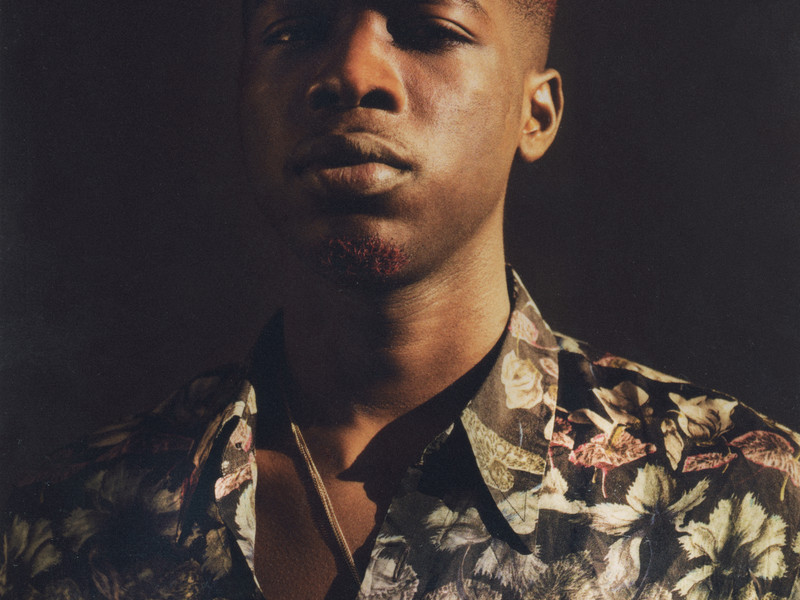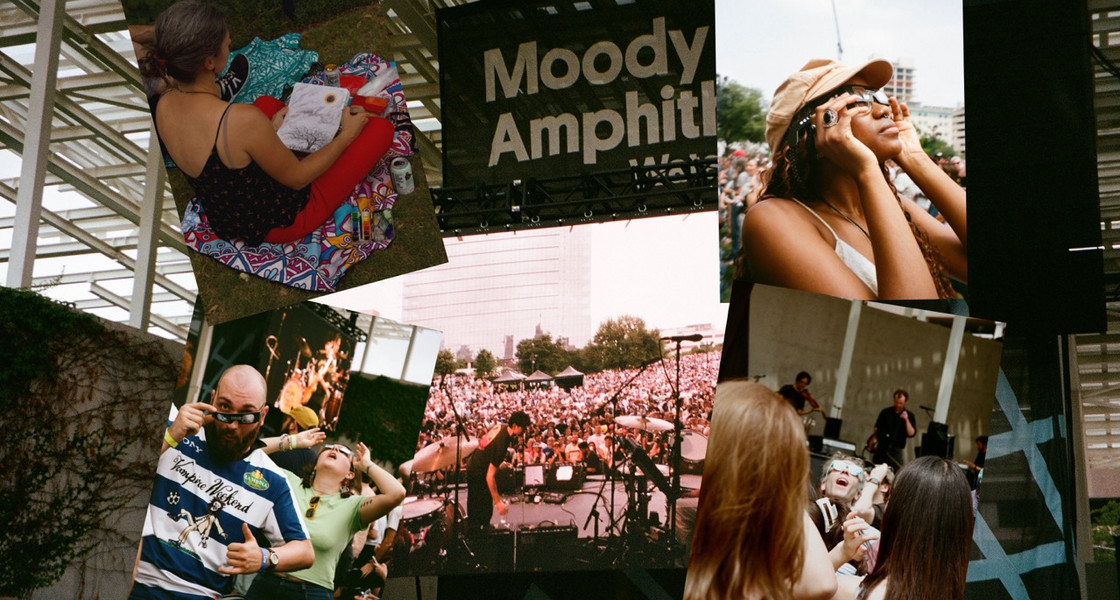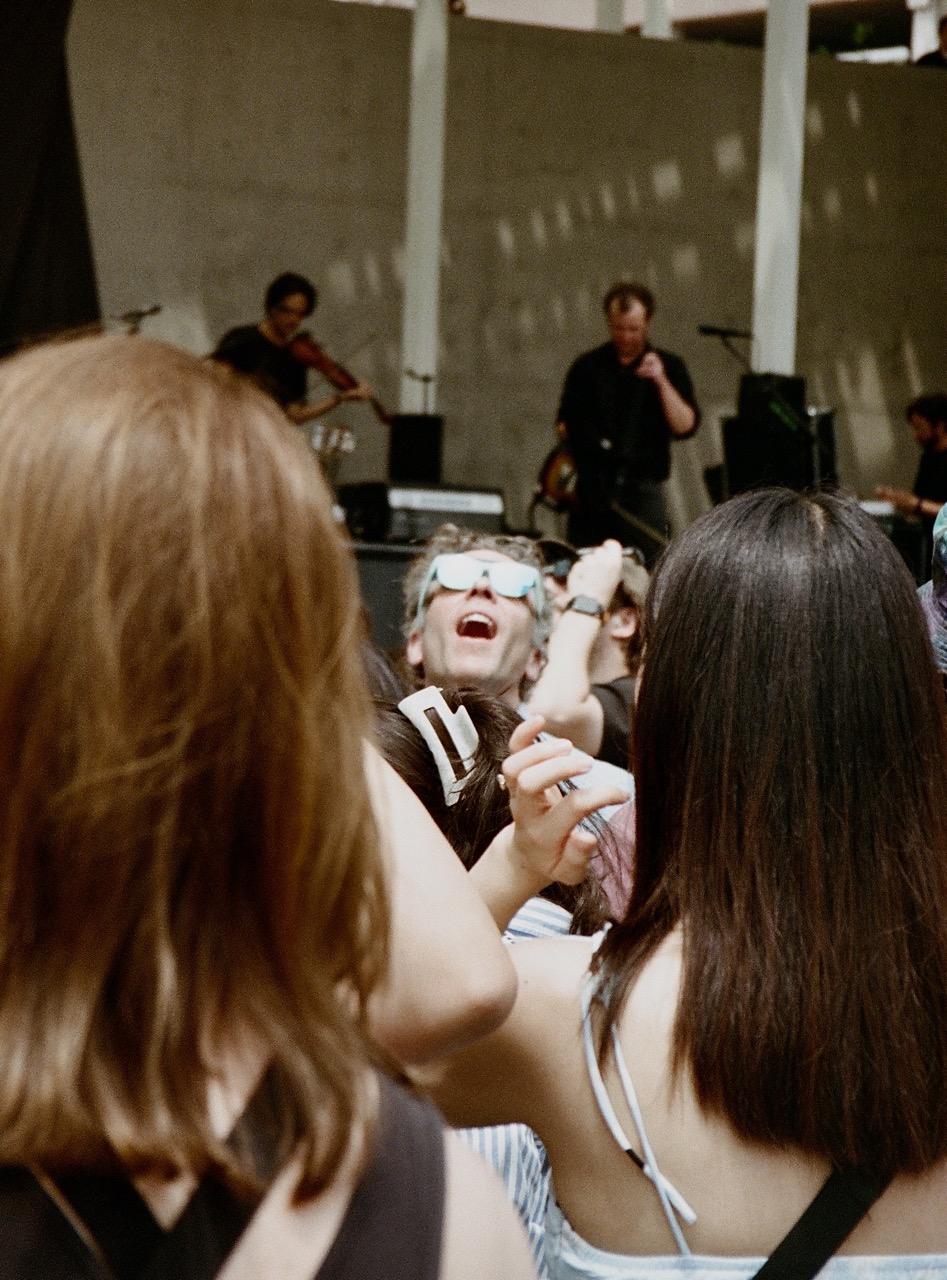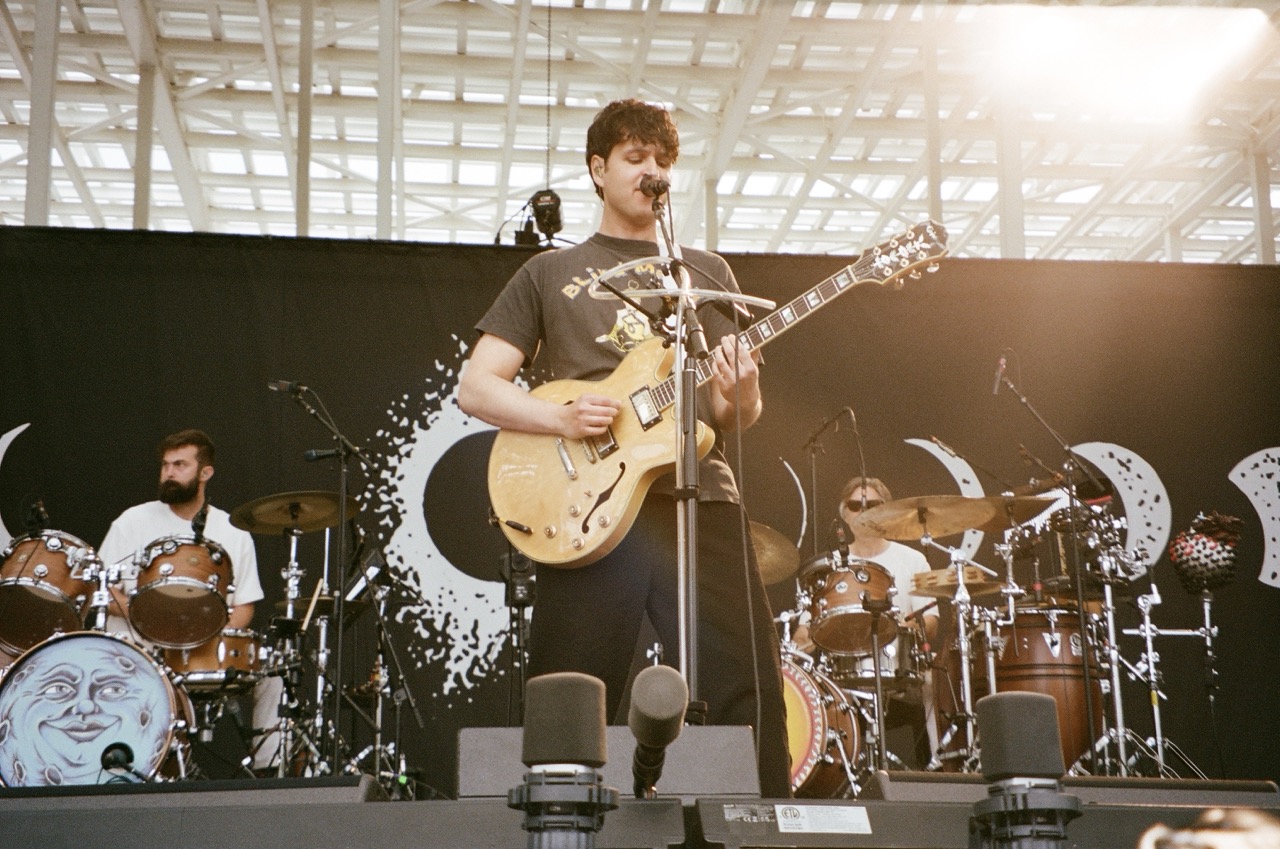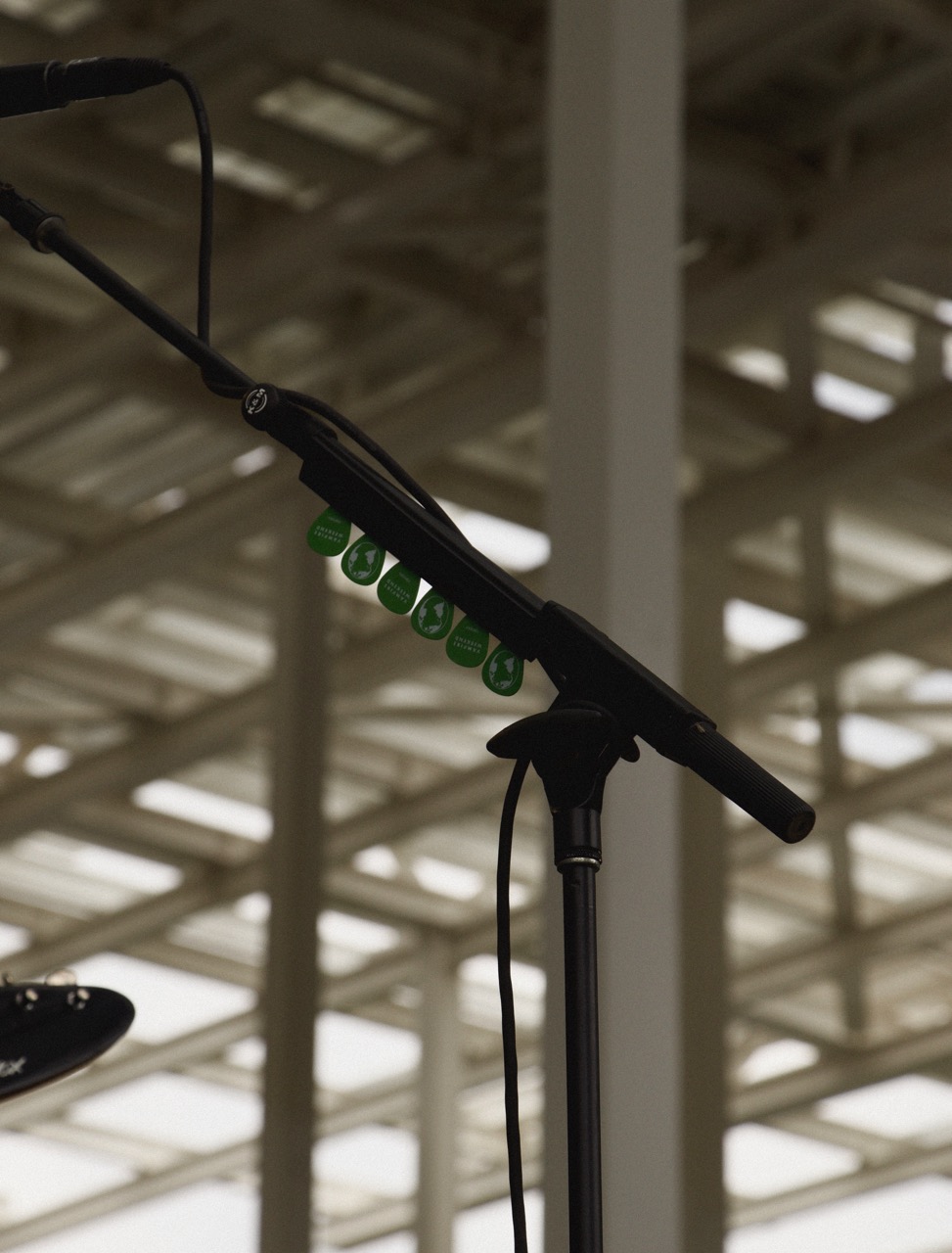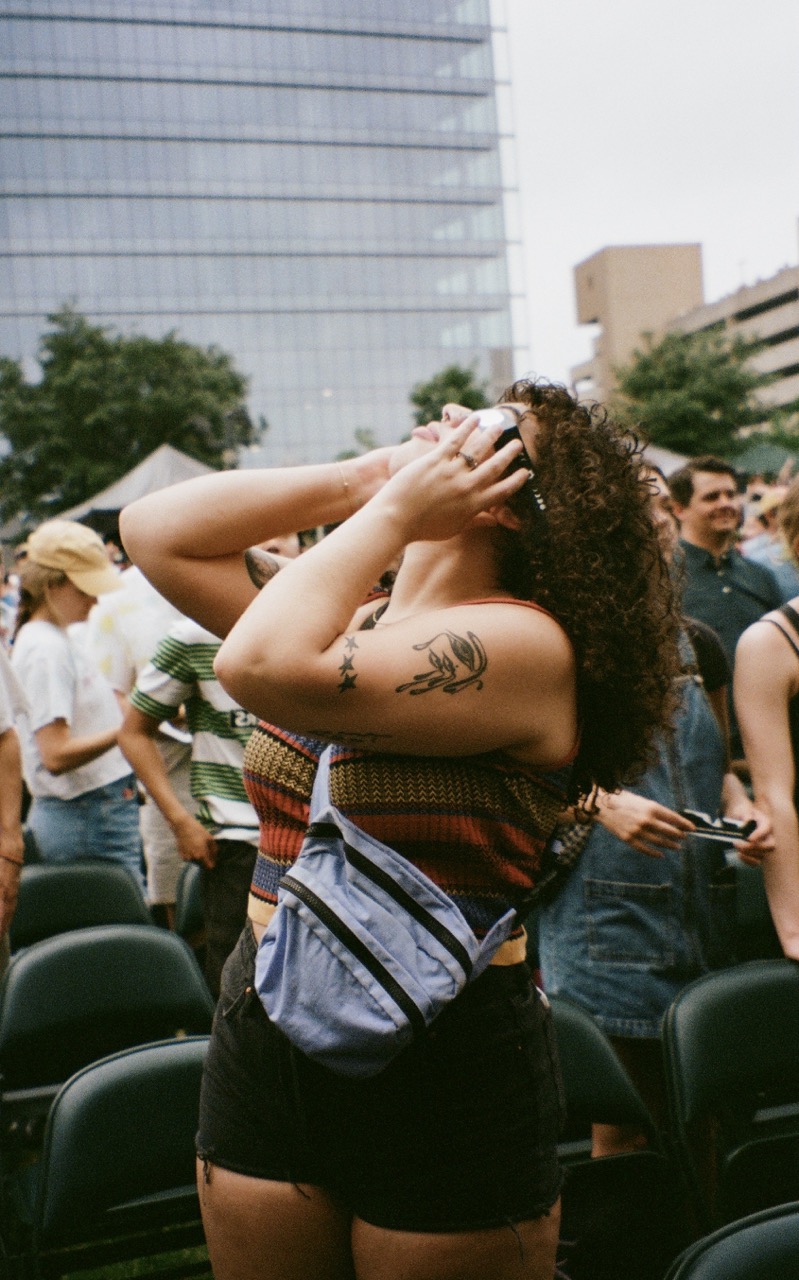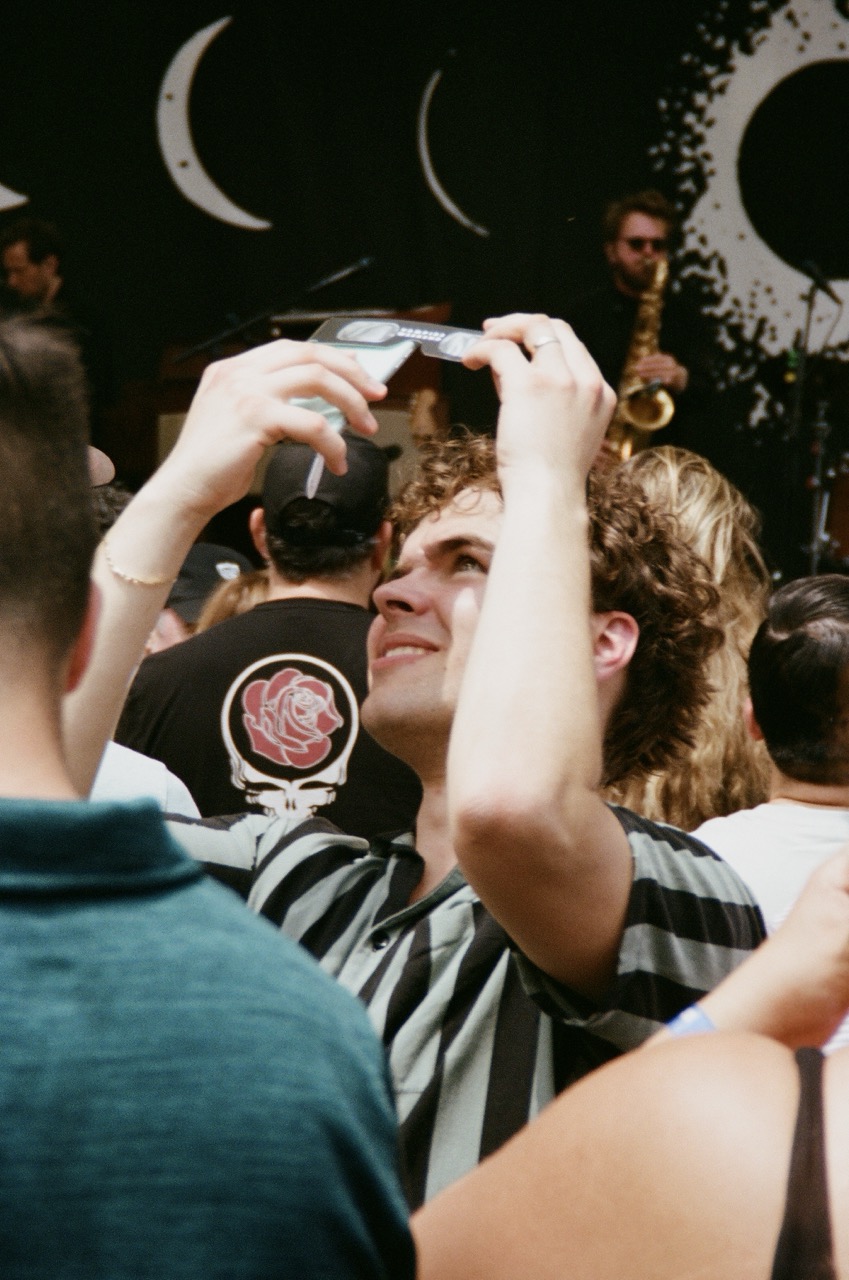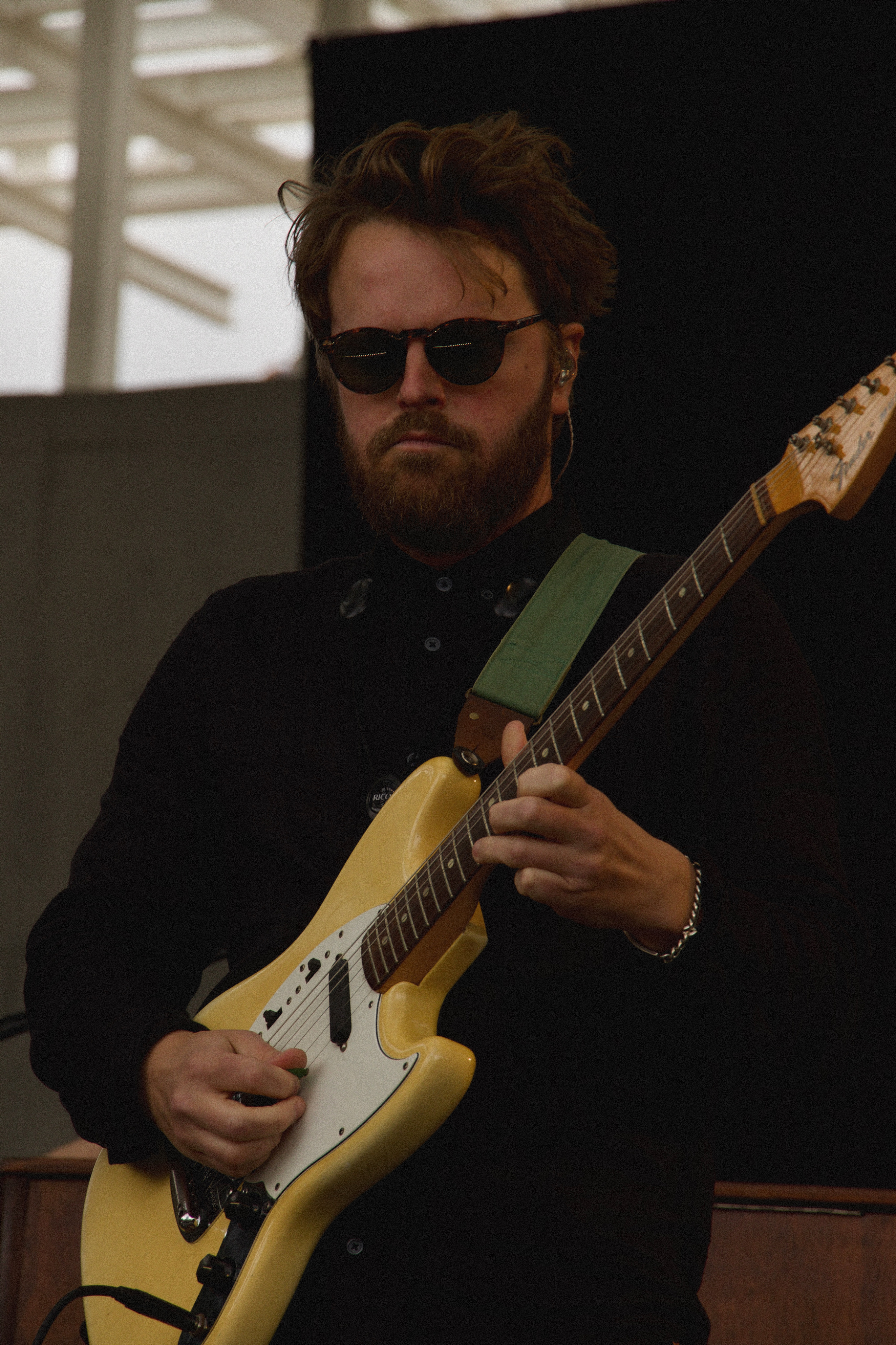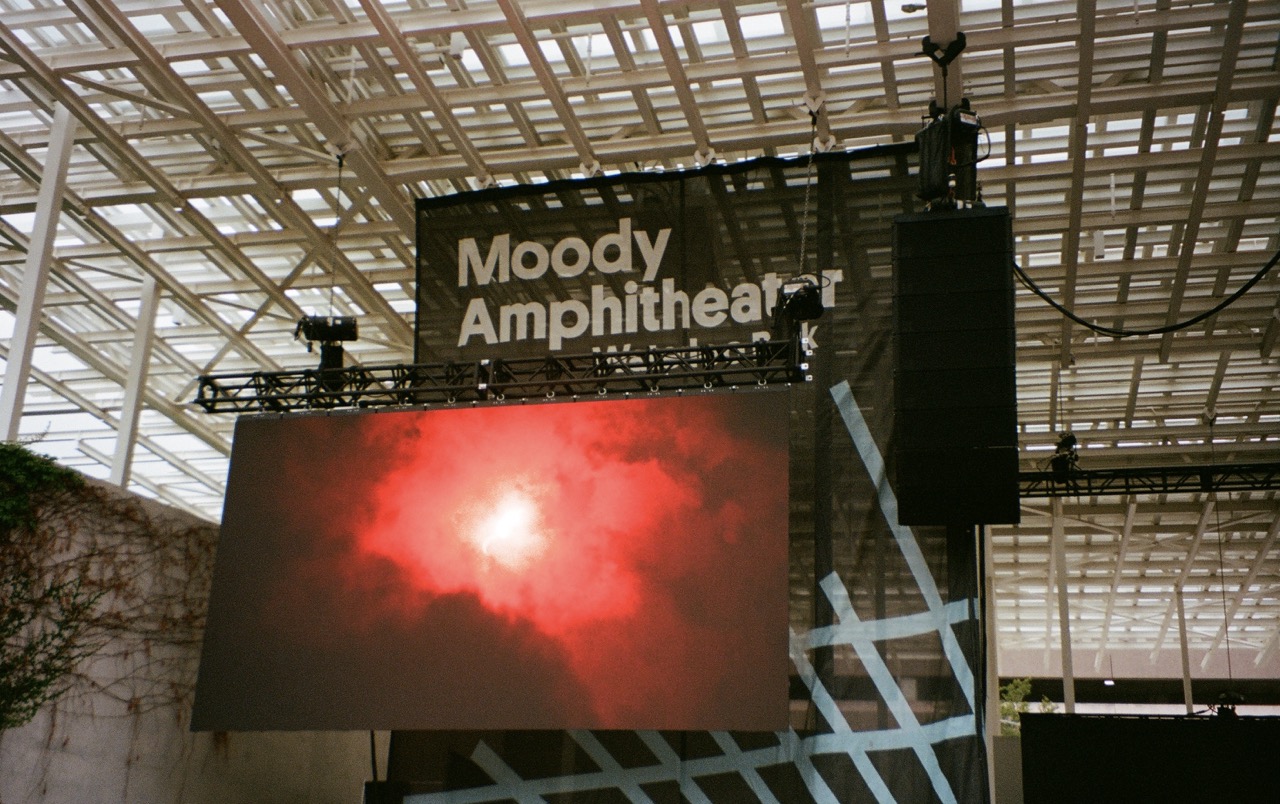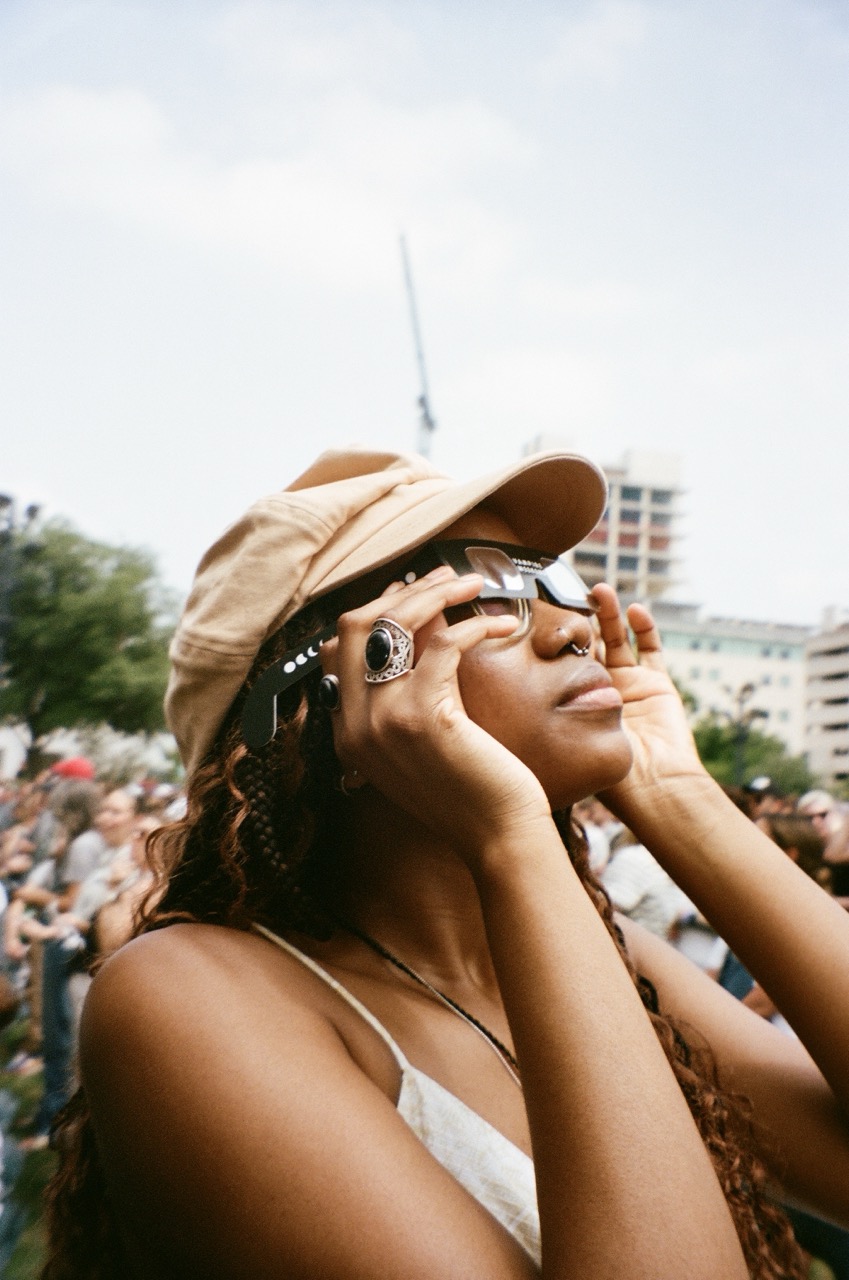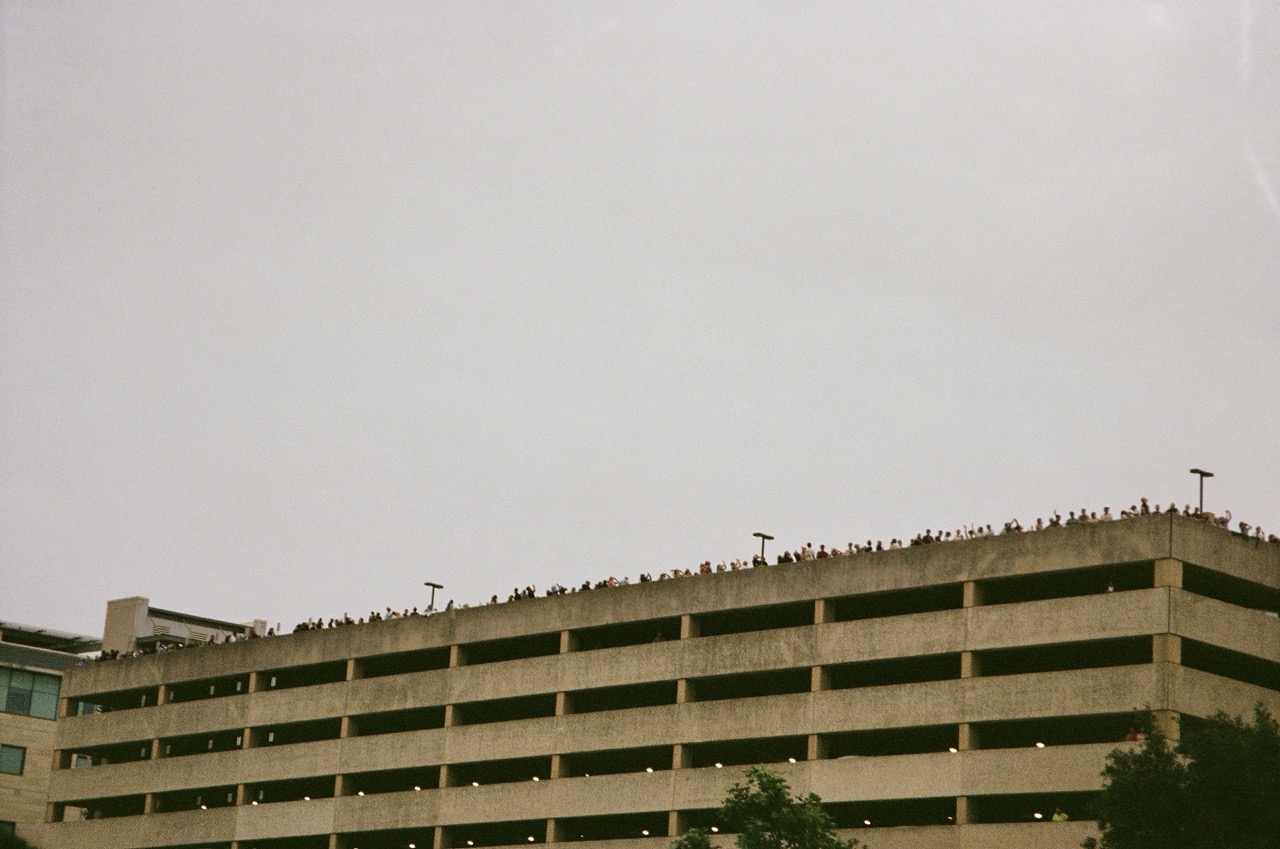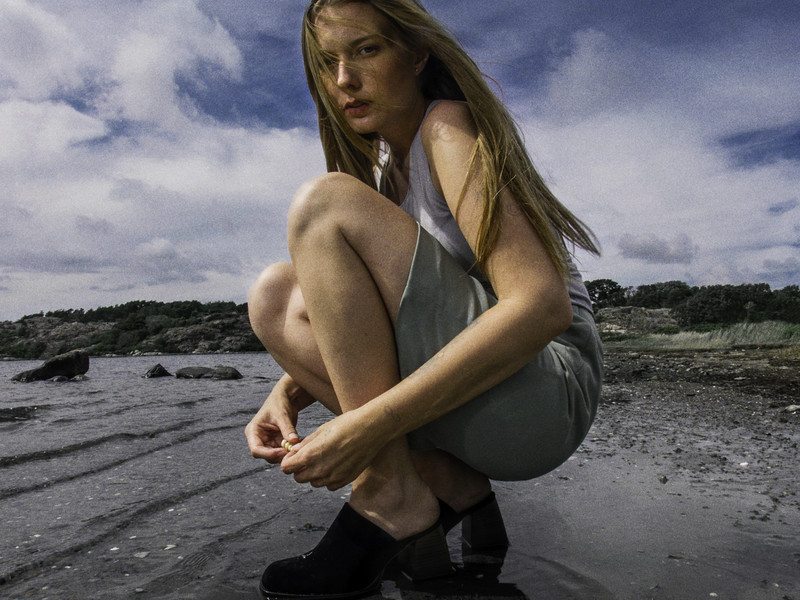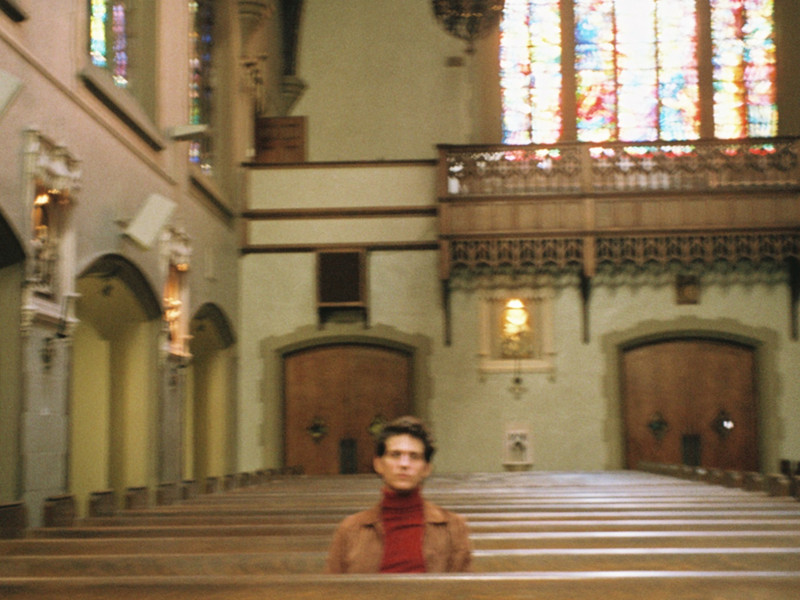BADBADNOTGOOD, Talk Memory
Now, with their newest project 'Talk Memory' the outline feels like a waiting room. A resting period, the moment right before something formless or sumptuous happens. It explores the absence of a band member, and how much their presence took place in the band. Alexander says "That just made us all step back and take time to work on personal projects and just be removed from the band for a little bit. So when we did get back together, we had fresh ideas but still were building something up from scratch again."
To differ from prior experiences, during the process of making the 'Talk Memory', there was a more positive approach to the relationship they held with each other and how they creating music. On this newest project, themes run deep by channeling motives of being more supportive of each other and letting individuals gleam at different moments. "Maybe the biggest theme of the whole record was the sense of community. In every aspect of the record, we were working with such a wide, new network of people that were all really inspiring and supportive." Alex adds.
Read the exclusive interview below.
So where does your background in music come from? Did you start out in high school jazz band or what does that look like?
Alex — Yeah, I definitely played in jazz band in high school. I went to a couple of jazz camps, which was just like a typical camp for kids but they put you into groups and you play jazz and you had lessons. But also it started from learning to play for myself, learning to play the drums, and then having a teacher that was a jazz drummer. So I was building technique skills — getting into jazz as a language and a way to develop playing the instrument — but with the techniques and language that is immersed in jazz, which was kind of cool.
Leland — For me, I started playing classical violin when I was six and then got into learning rock guitar eventually. But — the same way Alex is saying — I think it's kind of natural for musicians to eventually check out jazz because of the expression. It's just more kind of, like, advanced music. So I eventually got into that and wanted to learn saxophone because it was cool. I heard Wayne Shorter and Coltrane, so I wanted to be like them.
I personally love tezeta, which is regional Ethiopian jazz or East African jazz. I also love Idris Muhammad. What is your favorite region that jazz comes from?
A — Oh, that's a good question. I feel like I've probably listened most to American jazz and jazz musicians, Black American musicians. Obviously, that language has transformed to spread all over the world, now with European and white musicians. But I do love jazz from other parts of the world, especially from Africa as well, but I'm not as researched on it I suppose. I feel what I get exposed to more is definitely on this side of the world. I would probably say mostly American jazz.
L— Same with me. I did have a friend show me a lot of Ethiopian jazz though. Specifically saxophone players, I feel like there's no one else that sounds like that approach. The inspiration that a lot of Brazilian musicians took from jazz and meshed it with SABA is really beautiful. All the Antonio Jobim stuff and everything that that moved forward I think is really special in music too. But yeah, the majority of what I listened to was definitely American-based.
A — I'm also a pretty huge fan of Brazilian, like, soul-folk jazz. And that region is interesting because of the African population there and how that influenced the folk music in Afro Brazilian music as well.
People say that jazz is the most complex genre to make. Why do you think that is? And how do you think experimental jazz makes it easier or harder for you?
A — I haven't made too many other genres of music. I haven't written composition for classical and for multiple different elements in the orchestra, so I can't say that's not more difficult — and the language is very unique for that as well. I suppose when you're experimenting, you have all the availability to kind of open the door as wide as possible. And if you're using your ears as a listening method and the group you're playing with and the setting of the music allows you to just flow in any direction, harmonically speaking, obviously that's a super-easy way to perform and play.
I'm lucky that the gentleman in my band, like Chester, has an amazing sense of pitch. So if we are just improvising, he can go anywhere in any direction. But also it's a personality thing too, ‘cause he's not necessarily the type of person that's gonna just throw curveballs at the group and say, ‘I want to go here now.’ So he's a very supportive musician. I think when you're experimenting, it all depends on — it's a lot of personality at that stage too — on how the music evolves and how things change and how you're feeling that day. So I think that improvising and experimenting as a language — I don't know if it necessarily makes things easier, but it creates this unique spark to perk the energy up and make it happen. Almost like you're lighting a fire and you're making it bigger and bigger as the dynamic and intensity of playing grows and evolves.
L — I think the reason jazz is so difficult is just the amount of preparation you have to do ahead of time. When we're playing together, ideally we're all kind of super comfortable with the technical aspects of the instruments and the whole vocabulary and history of the music, so we can be spontaneous and react and be more emotive that way. There are examples of super technical difficult music in every genre, but I feel like a large-scale jazz composition usually isn't actually that complicated. It's usually based on some form of blues or expression. So I just think it's more so the amount of prep work and development you have to do as an individual musician — so once you are in the moment and creating with people, you can be as reactive and responsive to each other as possible.
How do you guys usually go into making a song? How do you set up your parameter? Is it the chords first or the melody? When do you find out when you should start using what of repetitions in your songs? What, how does that usually work for you guys?
A — It goes anyway at any moment. I suppose the record we're about to release was composing ideas and songs with a lot more inspiration to explore different styles of composition. So there's a few songs on there that are very simple chord progressions that were written around melodies or arpeggios and a way to create a different atmosphere and texture. We were also thinking a lot about trying to compose connected pieces of music together, so how one might end and flow into the other. That was a really unique setting to want to explore with ‘cause you were thinking very differently. In the past we would make a song — like really get into it — and then the next day we'd be like, ‘All right, let's try another one.’ But this time we were actually playing through different ideas we had connected, and they were changing and evolving every time. So that was a different approach which I think inspired us a lot in the album that is to come.
When do you know it's a BADBADNOTGOOD arrangement versus any other arrangement? What do you think makes your sound distinct?
L — Well Alex and Chester and myself, I think we all have unique sounds on the instruments we play. So I feel like even without trying, there's gonna be an element of it sounding like us regardless. But I think there's general things that we've cultivated from writing and playing music together for such a long time. And I think some of those factors are, like, interesting lush chord progression and grooves that feel good — and then melodic elements that are kind of catchy, but maybe a bit more expansive than your usual flavor, hopefully. And sonically, the sounds that we like are often vintage-based. And even synth sounds, there's things that we are always going back to.
A —Even as you grow as a human being, you get into different phases where maybe you're trying different foods or you're cooking and you're like, ‘Oh, I'm starting to get more into using these types of spices’ or whatever. I think that happens in your musical development too, where maybe you're like, ‘Oh, I'm starting to learn what more techno and European trans music is.’ It's not necessarily our band's gonna shift into becoming that genre of music, but maybe those types of energies kind of translate a little bit more, but naturally I think it's like it's a lot more subtle.
So I think the original things that have really inspired us to play and what we've really gravitated towards that has developed the overall style always carries through — which is usually rock and soul music, and then jazz that has kind of a driving pulse. So for musicians, like Elton John and people who create this train that's just constantly moving, but it has so much flavor and excitement. And I guess that's what I try to bring to music. It's just something that creates a platform to feel a rhythmic connection and some type of groove and hopefully some excitement.
Hearing the newest record, it sounds like a little bit more — I don't wanna say the word ‘mature’ because you guys are jazz musicians, like how much more mature could it get — but it just sounds more mature and it seems like you're exploring deeper themes. How are you pushing up from perfection considering it's been five years since your last record, and as I said, it was already sounding mature then. So how are you pushing up from the highest level?
A — Well, I appreciate that first of all. And there is actually, I feel like, a lot of maturing that has happened. A former band member who is a very integral and formative entity in our group moved on. It took a lot of time just thinking about the music we're making, how it's recorded. He was very involved in the recording process and also the artwork process. So it opened up so many doors at once, which was really exciting and enticing ‘cause we're like, ‘Okay, now we have to find different people in the community that we can connect to and ask and experiment and who would be down to help us.’ So the maturity kind of came with a different format of writing the music, just Chester, Leland, and I now — and then a lot of new connections trusting and exploring with different people in the recording stage.
We recorded it at this studio called Valentine in L.A. The engineer there, Nick — he's a French Canadian guy who's been living in L.A. for a long time — he has a super slick and amazing approach where he's incredibly good at what he does. And he's happy to facilitate any idea or help you get what you're looking for. The way he operates is, like, even if the music is the coolest or the best thing ever, it's almost like he doesn't care. So it's his job is just to create a place that's comfortable and it sounds really good. So we trusted him a lot and that just allowed us to focus on the music record very freely.
This next record came together quite quickly ‘cause we had written all the material, rehearsed it a lot, and it just went record it and didn't think too much about it. We didn't listen back to it too much and be like, ‘Oh, well this could be better.’ In the past, in our own studio space, we would really judge the recordings a lot and get caught up in track by track. But this experience was way more community-driven. Everything to do with this next album has been a huge community built for us. So I think that's what's created a whole new sense of maturity and growth, hopefully in the music and everything that comes with it.
If you could score any movie or animated television series, what would it be?
A — ‘Lord of the Rings.’ Well, it's funny, they're making a new TV show for ‘Lord of the Rings.’ If it was, like, an experimental jazz soundtrack and they wanted to make it super different than the Peter Jackson movies, that would be kinda sick. Those are kind of iconic, at least for myself, I watched those movies growing up. I'm a huge Wes Anderson fan as a kind of a modern-day filmmaker that I think has a great unique style and creates these amazing worlds. I think the music in his movies is always really cool and unique.
It would just be cool to work on something where you get free reign to create and explore something that is very inspired by what you're into that works with the project. Especially a lot of older soundtracks from the 60s and 70s — if it was Miles Davis or Quincy Jones, it was probably just that they were in a certain headspace or genre composing a lot, and then it comes together and creates this really cool pairing. Even modern cinema too — like with the Safdie Brothers and Oneohtrix Point Never, where it's really their world as the musical device in the film.
We made nine music videos for this next project to explore having a lot of downtime during COVID and wanting to connect with different creatives. So we made a lot of different pieces of visual components and I'm hoping that creates a unique experience. If you watch them all and listen to the songs all in one go, maybe that will lend itself to some type of cinema experience that's for original composition.
L — I agree, Wes Anderson or the Safdie Brothers — all their films are so conceptually and aesthetically strong that I feel like it would be so comfortable to slide into that from a musical perspective because it paints a strong emotion. I feel like some of the best music that's been done for films is, like, sometimes you don't even notice it because it's just a really nice textural support rather than trying to be overly thematic. Obviously, people like John Williams are incredible who have really strong themes. But in the modern context, I think it would be nice to be able to work with that A-list caliber of director and be subtle with the approach of how to strengthen and support the film.
I feel like if ‘Cowboy Bebop’ was re-made now, you guys would be really good for that.
A — Yeah, for sure. Are they remaking it? I thought I read something about that.
They are making a live-action Cowboy Bebop. That is true.
A — That's cool. I mean, I'm sure someone's already contracted for that. Talking about this part of me made me think of the ‘Flying Lotus’ one, ‘The Suzuki,’ which was pretty cool hearing his beats and compositions in anime. Also, I have a few friends that are really amazing visual artists and animators, and it's cool to see a lot more black narratives in anime and animation. Not that this pertains to us, but to me it’s really exciting to see different cultures emerging in stories and things that haven't before. So I think the world of scoring in cinema and T.V. is changing, which is really cool. So yeah, if there's a good moment for us to do our thing somewhere along the lines, we're happy to do it.
Going back to the record, it feels more pondersom in some ways. It’s like you're working through a difficult situation — It's not super depressing, but it's music for a floating or waiting phase, or trying to figure something out. What were some of the major themes and narratives in place for this record?
A — I guess we did have to figure a lot of stuff out. Like, Alex mentioning how a band member left — that just made us all step back and take time to work on personal projects and just be removed from the band for a little bit. So when we did get back together, we had fresh ideas but still were building something up from scratch again. Throughout the process of making the music, there was a more positive approach to our relationships with each other and how we were creating music. So I think some of the themes were just trying to be more supportive of each other and let individuals shine at different moments. Maybe the biggest theme of the whole record was the sense of community. In every aspect of the record, we were working with such a wide, new network of people that were all really inspiring and supportive.
Lastly, what is it like making music with people who don't particularly make the same music as you, or don't make music at all? Like, Virgil Abloah for instance.
A— Always usually really awesome. We can get very specific or speak a language of our kind of jazz studies that is quite technical. When someone doesn't have that language to share — but they have a whole different set of creativity, inspiration, and ideas — the way they articulate them creates this really fun open world. It's always cool to have to explore and find ways of connecting and communicating.
So with Virgil, we played the Louis Vuitton show in 2018 and he had a very specific vision for that. But also it was a large percentage of the moments when we were playing live — normally in a fashion show, everything's queued up and really tight in terms of like how it all shifts — so ours was just playing and then being given hand signals of like, ‘Okay, you should get into the next thing,’ which is kind of crazy and fun. So to have the space to be playing live and not be structured very stiffly was really cool to help execute the vision for the clothes and the feeling of the show and the music.
Then we played the Met Gala afterparty, and that was just totally fun. They just wanted to have live music there, so we put together a bunch of new material to go out and play, like some covers and jazz tunes. They were all just really jamming out and started to grab a microphone and start freestyling — ASAP Nast and Kid Cudi were just kind of trading off. Virgil gets people super excited and he was really stoked with his birthday and Met Gala and all these things. So his energy was radiating through everybody. But it was cool to hear Kid Cudi sing melodies on these jazz chords.
